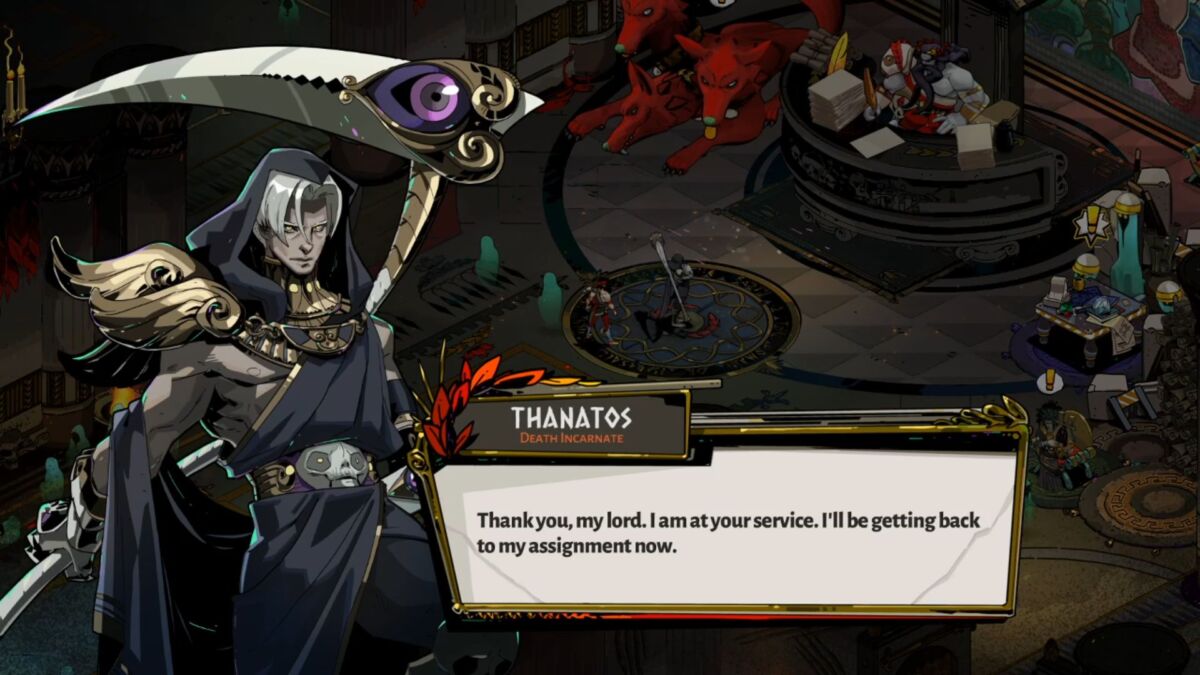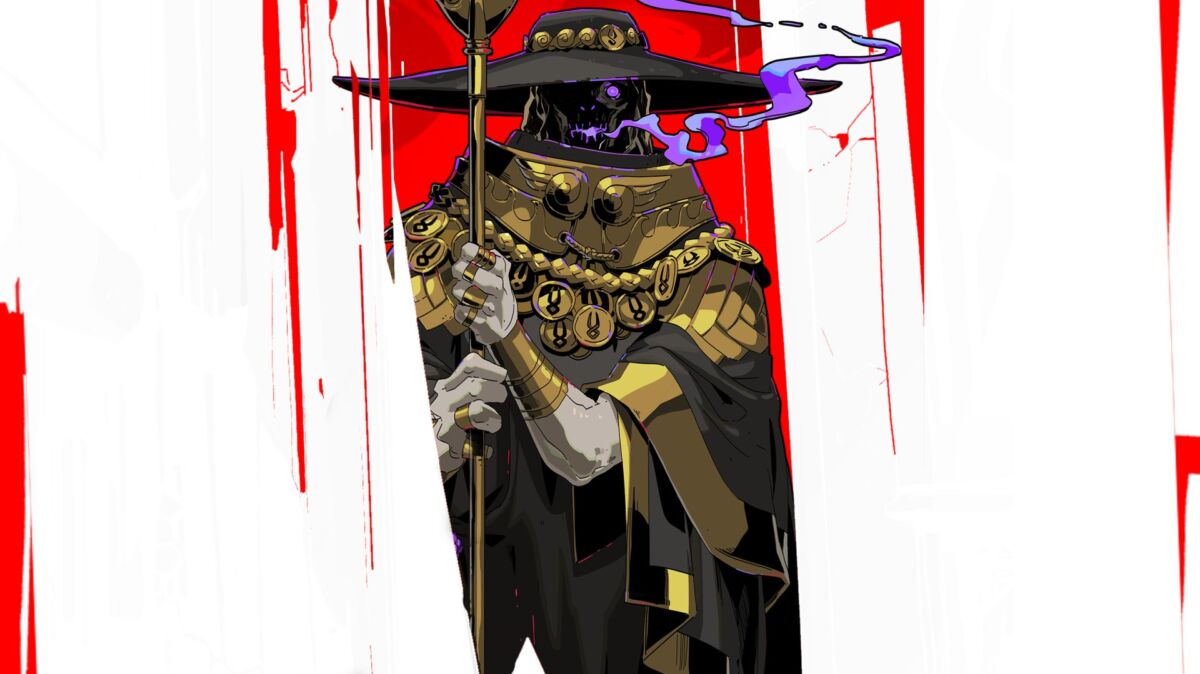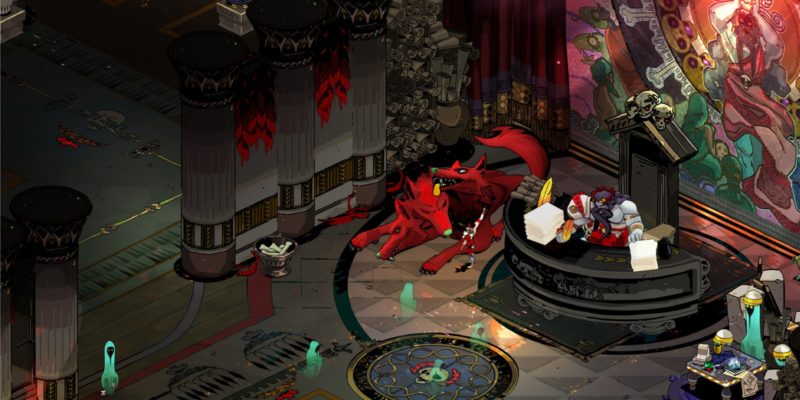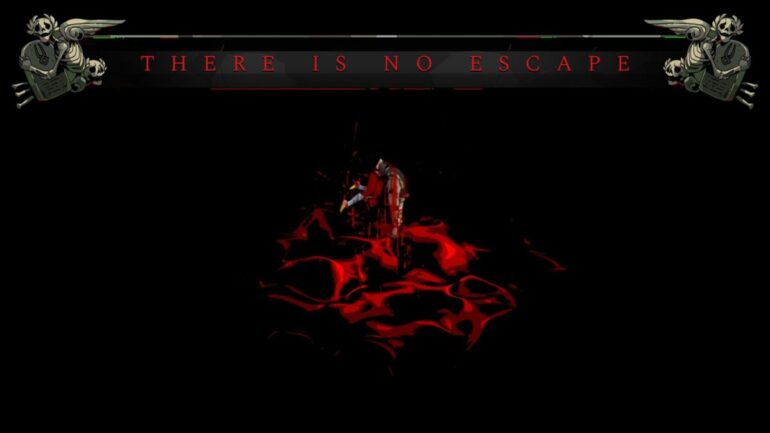Welcome to YOU DIED, a new column where I dive into depictions and discussions of death in video games. We’ll dig into what death means, how this meaning is conveyed, and what this means for the game or for the players. Today, we’re descending into the Greek afterlife to examine the many, many, many deaths of Supergiant Games’ smash hit Hades.
Hades, 2020’s runaway star roguelike juggernaut, has already won its weight in end-of-year GOTY gold. We’ve heaped our fair share of praise onto the game on this site as well. The game deserves every kind word it has received — it’s an easy to pick up, yet complex to master tour-de-force of run-based action, where every aspect of combat can be tailored to your personal play style, making every run different yet equally satisfying. It is also very difficult, meaning players die while playing Hades, and they die often.
The story of Hades is fairly straightforward: fed up with his father’s sour attitude and hoping to find his birth mother, Zagreus, son of the Greek god of the dead Hades, must storm through the gates of the afterlife and fight his way to the surface world. Other members of the Greek pantheon offer support from afar, giving him boons to augment his abilities and increase his chances at making it out.
Across so many bungled runs and botched escape attempts, what do the blood-soaked halls of the Underworld have to teach young Zagreus? To answer this, we need to examine how exactly death functions within this world. For mortals, living up on the surface and taking refuge for eternity within Hades, death is death: when they die, their souls come down to the underworld and here they will remain forever, because that’s how the afterlife works for mortals.

For Zagreus though, and by extension the player, death isn’t the single mortal death — death is a momentary setback, for him as well as for us. Gods are gods, after all, even a god born in a world of death like Zagreus. Like a player loading up their Dark Souls save, Zagreus experiences death like a frustrating road bump in his progression.
When you die in Hades, you don’t restart or reload and pretend it never happened, as in more traditional narrative games like The Last of Us, for example. Joel and Ellie don’t know how many times you’ve goofed up in a gunfight, but Hades is actually aware how many times the Lernean Hydra has handed him his chthonic ass.
Because of this awareness, stemming from the game’s roguelike run-based structure, death is the primary engine of narrative progression — things happen when you die, and you get to make more progress/make changes every time you return to home base in the House of Hades. You can talk to NPCs, develop your connections with characters, upgrade the house’s decorations with in-game currency, and unlock/modify your various weapons — but you have to die and return back to the house to do any of these things. Death is never really treated as a punishment, because returning home brings reasons to stay engaged.

Narratively, this cycle of death also serves a purpose: As Zagreus continues his endless quest for escape and inevitably gets kicked back to the start again and again, he slowly learns to appreciate his home and the people that “live” there. Redecorating the house is cosmetic, yes, but it’s an instance of Zagreus (and by extension again, you the player) taking an interest in where he grew up. He can make meaningful connections, he can learn to play the lyre, he can even get a lover (or two), provided you’re making the most of your inevitable returns home.
The game’s Assist Mode underlines the importance of dying. Hades does not have an easy mode, but it does have ‘God Mode,’ in which every time you die, you gain 2% damage resistance. You will eventually gain a serious defense buff against enemies, but you’ll still have to run yourself through the meat grinder over and over for it to make a significant difference. The developers wanted to make the game more forgiving, but they didn’t want to take away the loop. Hades is not meant to be blazed through for a speedrun, at least not at first. You need to appreciate the grind of getting smacked down a few dozen times, learn the rhythm of the world, and only then, when you’ve got a solid understanding of the world around you and your place within it, will you have the practice and instincts to clean house.
In the real world, repetitive actions and a sense of routine, albeit with novelty here and there, grant us the ability to gain perspective and better ourselves. We get better through practice, and while the whole notion of “10,000 hours = expert” might not actually be all that accurate, there is a sense of control that comes from familiarity. When you learn the patterns of a boss battle in Hades, you’ve won that knowledge over however many deaths it took to get there. Success takes effort. Success also takes failure, in a roundabout way. But does enjoyment and fulfillment only come from success? What about players who still haven’t quite finished their escape? If the escape attempts in Hades only remain attempts, then what’s the point? Well, because the game is fun.

Sisyphus’ inclusion in the game points to the theme of repetition and cyclical behavior. For those who skipped high school English class, Sisyphus was punished for his hubris against the gods, and was sentenced to roll a boulder up a hill each day, only for it to roll back down, over and over, day after day, for eternity. Sisyphus is in Hades, in the first area of the game as one of the first non-deity characters you meet. He’s a chill guy, who’s named his boulder and no longer sweats the small stuff. This makes sense: he’s had plenty of time to get used to his situation.
The philosopher Albert Camus wrote an essay on The Myth of Sisyphus, which contains the key conclusion “One must imagine Sisyphus happy.” He’s got the greatest job security in the universe: the same job for all of eternity. Within this routine, which may seem mind-numbing, Sisyphus can always have something to do. He never hurts for a lack of purpose. Zagreus, likewise, always has an escape to attempt, and his deaths are just the start of another “day.”
While death is, for us, a lot more permanent, Hades’ version of death as a temporary obstacle still has useful applications for us. While our daily grinds and capitals jobs might tell us to fear and shun failure, that a single failure means death and ruin, Hades begs to differ: A failure isn’t death. Heck, a death isn’t even death for Zagreus. And besides, if we do not try, if we are not willing to fail, emerge from that pool of blood, wipe ourselves off and start again, how are we going to succeed in the first place?
READ NEXT: You Died: Killing Your Friends In Spiritfarer
Some of the coverage you find on Cultured Vultures contains affiliate links, which provide us with small commissions based on purchases made from visiting our site.

